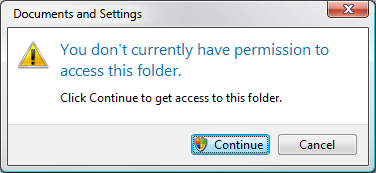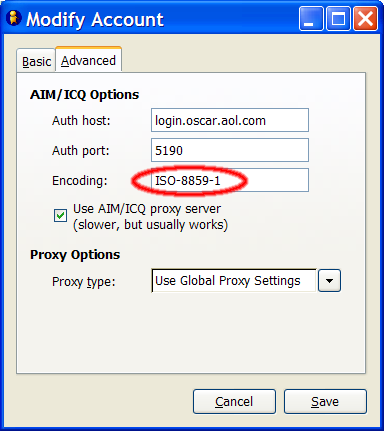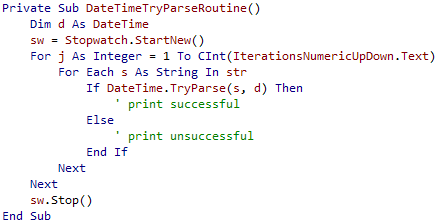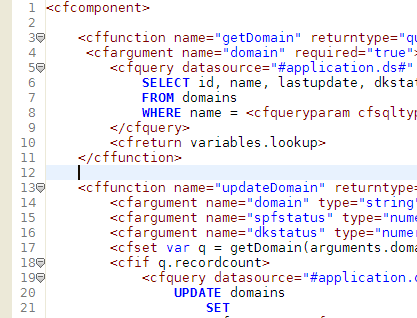As part of an on-going research I've been playing around with Windows
Vista build 5342. Spoiler: it's not ready for prime-time, not even remotely.
Here's a quick run-down:
- Performance is aweful. On my reasonably powerful
development workstation (Athlon 64 3500+, 1GB RAM, Radeon X300) it literally
crawls, and feels closer to how Windows XP performs on my old Celeron
900-based server at home. Eating broken glass shards seems almost
preferable to browsing files on the Visual Studio 2005 DVD.
There
are also minor performance issues which may be related to immature drivers as
opposed to Vista itself, primarily to do with sound: practically any CPU
time-consuming operation on the OS side (such as when it changes screen mode
or performs sudden but serious disk I/O) results in sound stuttering.
- Eye-candy: Vista looks slick, have no doubt about it. The
new Aero is very appealing. I'm not a Mac afficcionado so I can't really tell
if it's been ripped off of Aqua or not, but strictly speaking I don't
actually care. Some aspects of the UI can definitely use some polish -
particularly the annoying tendency to reset the display whenever I switch to
one of the "secure" displays (i.e. login or ctrl+alt+del), but the window fade
and deformation effects are wicked, and the Glass feature (where window frames
look vaguely like glass and everything beneath them is blurred) are absolutely
gorgeous.
- Compatibility and stability is severely lacking. I'd
expect an OS that's been in production for years (not to
mention scheduled for a 2006 release, which was only recently postponed)
to be a lot more stable than this. Most applications work reasonably
well, but for example while Firefox installed perfectly it wouldn't work past
the first boot:
What's worse is that Firefox wouldn't even uninstall afterwards. That's not
generally a good sign. Visual Studio 2005 wouldn't install at all
(installation failed silently) and I couldn't find anything useful about it on
the 'net (just some comments regarding MSXML6, which was not the case here)
until I rebooted the machine. The .NET Compact Frameworks, J# Redistributable
and SQL Server 2005 would not install at all. Some applications would not even
start (the Total Commander installer, for instance), others would display
unusual error messages but work just fine afterwards:
Networking in particular was unstable; I've no idea where to get beta Vista
drivers and since everything was mostly working out of the box I wasn't
inclined to look, but the network driver for the onboard nForce adapter would
often simply stop working, claiming that there is no traffic on the network.
Only a reboot would remedy this.
-
Usability: In some respects, Windows Vista is a tremendous
improvement over Windows XP; it contains a huge amount of subtle but
helpful hints in dialog boxes, much quicker access to some aspects of the
OS configuration and a search function is available almost everywhere
(especially useful in the Start Menu). When it comes to security, though,
Vista is horrendously frustrating. Check out this post
by Paul Thurrott. A noted Microsoft fanboy, such harsh
cristicism coming from him gets double the attention. He is so
right: Vista will continuously pester you with annoying security
dialog boxes, and of particular annoyance is that this happens even if you are
an administrator! If Microsoft ever wants Windows to be taken seriously
security-wise, they should stop trying to stop malware from exploiting
administrative privilidges via ever more sophisticated techniques, and start
educating users not to use administrator accounts in the first place. This
malfeature, called User Account Protection (UAP), sends the wrong message. I
initially had the same reaction to Fedora Core 3, which would keep
asking me for administrator password, but I became accustomed to it quickly
because you don't usually DO things that require administrative priviledge as
a user. With Vista you can't do squat without getting a series of annoying
dialogs. For example, simply going to C:\Documents
and Settings results in this dialog:
 Clicking on Continue results in this dialog:
And finally, to add insult to injury, despite being an administrator I
can't seem to change ACLs on folders that reside on my own
machine:
Last but not least, having a look at the security settings for said folder
showed that nothing, in fact, was wrong and I shouldn't have any trouble
accessing it:
Additionally, there was some really weird usability bugs/issues. For
example, when I changed a folder's view settings to show hidden and system
files, this had some unexpected results, which you can see here:
Finally, I leave you with this jaw-dropping dialog I encountered on a file
copy operation:
-
Internet Explorer 7 is leaps and bounds beyond Internet
Explorer 6 in everything from performance to usability. Still, in the spirit
of frivolous security Microsoft has chosen to annoy the hell out of you with
brilliantly useless warnings that require user intervention, such as this:
I hope to update to the newer 5365 and re-test things, but currently this OS
seems so far from ready it's not even funny.
It's hard to miss the irony in the fact that the Visual Studio debuggers
are riddled with bugs. As one of the most widely-used programming tools I'd
expect it to be polished beyond reproach, however even in the managed world the
debugger is - to put it mildly - not perfect.
The VS2003/.NET 1.1 debugger is particularly susceptible to threading issues.
It stalls, it barfs, it
lies, and now it even triggers exceptions in your code that aren't even
documented in MSDN - I was getting ThreadStopExceptions on some of my threads
while stepping over instructions. There was no way to know when it might happen
and no way to reproduce it consistently. I was reluctant to blame the debugger
at first, but this thread
provided both the culprit and the solution: close all locals, autos and watch
windows and you should be right as
rain.
Part of a very large project we're working on stopped working oh-so-suddenly
for one of my colleagues. An exception would be thrown on initializing .NET
Remoting - specifically when instantiating a TCP port. Here's part of the
exception content:
System.Net.Sockets.SocketException: Only
one usage of each socket address (protocol/network address/port) is normally
permitted
at
System.Runtime.Remoting.Channels.Tcp.TcpServerChannel.StartListening(Object
data)
at
System.Runtime.Remoting.Channels.Tcp.TcpServerChannel.SetupChannel()
at
System.Runtime.Remoting.Channels.Tcp.TcpServerChannel..ctor(IDictionary
properties, IServerChannelSinkProvider sinkProvider)
at
System.Runtime.Remoting.Channels.Tcp.TcpChannel..ctor(IDictionary properties,
IClientChannelSinkProvider clientSinkProvider, IServerChannelSinkProvider
serverSinkProvider)
... (deleted)
Running netstat -b proved that some process or
another was indeed listening on that particular port, however it failed to say
which process is responsible (just said "System".) Running the excellent SysInternals utility TCPView also
proved futile, as it displayed a prominent <non-existent
process> in the Process column.
As usual, at this point I turned to the 'net; a quick search provided a hypothesis
that IIS was somehow responsible for hogging the port; this didn't seem to make
sense because IIS was not involved (the channel was not hosted in IIS, nor was
it an HTTP channel to begin with) and shutting the IIS services down didn't help
any either. Listing the active services via tasklist
/svc proved useless as well, as did a reboot.
After some serious searching I picked up this
thread in the pgsql.hackers newsgroup; apparently they had similar issues
with broken security (AV, firewall) software not uninstalling properly; a lot of
security-related software products (called Layered Service Providers, or LSPs)
install their own TCP/IP handlers into an appropriate chain in the Windows
TCP/IP stack. Although that wasn't the case here, we figured it can't hurt to
try the solution pointed to by the newsgroup participants; LSP-Fix is a utility that rebuilds the
appropriate registry entries in an effort to restore the handler chain to a
working condition. One reboot later and everything was back to normal.
I'm still not clear on the cause of the issue, but this information might
prove useful up ahead...
The immediately good news: the 2.0.1 version of Hebrew OpenOffice.org is out - go and
download it! It features a whole bunch of bugfixes, primarily fixes to the way
tables in Word files are imported. I don't use Word much - particularly not
for Hebrew files - so I can't righly comment on it, however I've been told
by friends and peers that this bug was one of the biggest issues they had with
the 2.0 Writer.
Also, a tip: it's not obvious nor exactly trivial, however it IS possible to
do regression analysis and include trend lines in Calc sheets and charts; check
this
tutorial out (via xslf on the OOo.il
forum).
Although I enjoy using GAIM, it has
several issues - most notably a very poor UI experience, which is being worked
on in the 2.0 betas (which are perfectly usable, by the way). The second most
obvious problem I've been having is to get GAIM to receive Hebrew messages from
buddies on ICQ. This issue can be easily fixed by accessing the ICQ account
properties and changing the Encoding field:

The default encoding is ISO Western (ISO-8859-1); to get Hebrew properly just
disable the account, change the encoding to Windows
Hebrew (Windows-1255) and re-enable it. Although not technically correct,
ISO Visual Hebrew (ISO-8859-8) seems to work too.
I'm not sure if the Western encoding is indeed the default - I've been
importing my account settings since GAIM 1.3 or so - but I'll look into it and
file the appropriate bug report (encoding should be set to what is appropriate
according to the current locale, at least in Windows).
Check this
out, then stop wasting our collective time and send a supportive e-mail to
alexness at toysforbob dot com.
GET ON WITH IT!
The other day my laptop started acting up - it slowed down to a crawl then
barfed on burning a disc (which I originally attributed to irregular
I/O behavior on the side of µTorrent); that in itself was annoying, but
it only raised warning signs when another burn (this time without any active
background applications) failed in the exact same spot.
I decided to run scandisk (which, being that I'm running only one
partition, would not run until the next reboot), and over the next three hours I
could do nothing but stare at what any seasoned computer professional will
sadly tell you is one of the most horrible sights in existence:
Three hours later I have a fully-functional laptop with over 5MB of bad
sectors (and, as the same seasoned computer professional will tell you, the
problem is only exacerbated with time) that runs somewhat slower than it ought
to on I/O operations. Luckily the warrantee is still in effect, but invoking it
means having to spend days without my laptop.
Almost makes me wish I bought an HP (unless I'm mistaken, they have a "if it
breaks we'll replace it for you at home within 24 hours" kind of policy), but
then I remembered that my laptop has been customized by the shop in which I
bought it (with a 7200RPM Hitachi drive instead of the standard 5400RPM one).
Since I'm not even (remotely) new to hard drive crashes I knew what this meant -
a trip to the store, which sends the drive to the local importer, waiting for
days while it's being "examined" and then another trip to the store to get it
back. What makes it even worse is that the shop where I bought the laptop (Lamir) is situated in another part of the
country.
Luckily the lab guys were kind enough to allow me to remove the hard drive
and send it to them via courier, which should save me a couple of unnecessary
trips to the centre of Israel. I'm not sure how support services work in other
countries, but this is quite unusual here - normally warrantee on branded
products is voided if you tamper with them (even if it's something as trivial
as removing or installing a hard drive yourself), so in that I have to
thank them. I just hope the rest of the experience is as pleasant.
Now I'm off to get myself a NAS device to back up my stuff
on.
There's a recent fashion among blog-savvy developers in looking for the
"ultimate programming font." This has been around as long as programmers, but
the discussion has recently been sparked again by the impending
release of Microsoft's Windows Vista along with its slew of new
fonts. I'm not the early adopter type so I couldn't really be bothered and
stuck with the default fonts, until I got a new monitor at work and figured it
was about time to ditch good ole Courier New try for something with a little
more panache.
A good couple hours later I had a large selection of fonts; the selection is
actually quite overwhelming, however there are very few actually
good fonts (for example, the Proggy fonts are
generally considered some of the best around, but I can't stand looking at them)
and fewer still could actually dethrone the aging but solid Courier New.
At first I actually considered using Consolas, although it's not easily
obtainable. A quick Google Images search provided me with the necessary visual
example of what the font would look like (screenshot courtesy of Jeff
Atwood):

Honestly? The font looks horrible. I find the fuzziness introduced by the
ClearType rendering very hard to swallow (the font looks as though it's
suffering from colour-bleeding, even though it's not). I couldn't be
bothered to even try installing the font.
A casual comment from a reader in one of the blog posts I've read struck me
as brilliantly simple: I've been using OpenOffice.org for quite a while now (give
it a try!), and the default font for Writer is a relatively new font from
Bitstream (via GNOME) called Bitstream
Vera. It originally struck me as an impressively neutral font -
pleasing to both eyes and mind. Apparently a monospace version of the Bitstream
Vera Sans font is included with OOo (and additionally available via the previous
link); it's professional, it's free and it looks great (screenshot shamelessly
stolen from this
place):

I heartily recommend the Bitstream Vera Sans Mono font for programmers (note
that it takes a bit
of hacking for it to work with Visual Studio 2003, although it works just
fine with 2005).
Finally, if neither of the above fonts suits you, there's a huge list of
programmer fonts here; one
alternatives you should look into is Andale
Mono, which is very slick and functional.
Windows is anything but user-friendly if you're not a local
administrator, or so I learned when my dad asked to be able to convert CDs to
MP3s so he can listen to them on his PDA. A simple enough task, I figured I'll
just configure Exact Audio Copy to
"dumb mode" and leave instructions on how to use it (basically, double-click the
icon; select the appropriate drive; Alt+G to get the information from freedb;
select relevant songs; F5).
For some reason my dad (whose user is not a local admin so as to keep
spyware and other crud off our system) couldn't access any but the generic
(Daemon Tools and other emulation layers) CD drives. It took me two hours (!) to
figure out that:
- Windows 2000 and on does not come with an ASPI layer installed
- Most software (including EAC) has been updated to use the native API calls
instead and do not require ASPI
- The native calls fail for non-administrative users (!)
Installing an ASPI layer is supposed to remedy the situation; I've opted to
use ForceASPI 1.8 (instead of
the default Adaptec installer) but that did not have any effect. To make a
(very) long story short, the way to handle this is to use Frog Rights, which
finally solved the problem.
To add to my frustration, however, after screwing around with ASPI drivers
for hours Nero would no longer recognize my DVD-RW; I figured I'll just intsall
the latest Adaptec ASPI drivers which completely screwed up my
system - Windows XP would no longer boot and the only clue a logged
boot would provide is that something goes very wrong loading the fastfat.sys driver. Nothing I did over the next four
hours would allow the computer to boot; oddly enough, my brother managed to boot
the machine by simply removing the empty DVD-R media in the DVD burner (a major
WTF). We're still not clear on the problem.
Update: Apparently Nero has its own tool for this purpose called Nero BurnRights, which works like a charm.
I've been playing around with Leonard Maltin's Movie
Guide for the PocketPC for a couple of days now, trying to find a useful
program for cataloguing and keeping track of my DVD collection. I couldn't find
any free software that didn't outright suck, so I turned to commercial software
instead; LMMG seemed to fit the bill - mini-database of DVD releases, the
ability to easily categorize and keep track of my DVDs and all sorts of nice
features.
I did find out, though, that I'm sorely missing an import/export feature. It
would be cool to be able to post my movie list somewhere, or send reminders to
friends to whom I"ve lent movies that those movies are due back and all sorts of
neat stuff that you can only do if you have access to the movie list.
Not even a customer yet, I've fired an e-mail to LandWare's support
department:
I'm seriously considering
purchasing the Movie Guide (I've been testing it thoroughly for the last hour
or so), but have one serious qualm with it: my movie collection can not be
imported/exported (preferably to a well-documented CSV or XML-based file
format). Additionally, although my PDA does not feature internet connectivity
it would be great if movies could link to IMDB/some other online movie
repository (either directly or via title search).
Are either of these features likely to be included in the software? The
import/export feature is practically a show-stopper for me (I'd like to be
able to e-mail my DVD list to friends and that sort of thing).
A day or so later I get the following reply:
Hi Tomer,
As of last night, Movie Guide for Pocket PC now provides an import/export
feature, using tab-delimited files.
Product info: http://www.landware.com/movieguide/ppc/
Conduit
Documentation: http://www.landware.com/movieguide/conduit/ppc/
I'll log your other comments for our developers; what exactly are you
looking for with regard to online connectivity?
Josh
If that isn't good service, I don't know what is. I'm
sold.
|